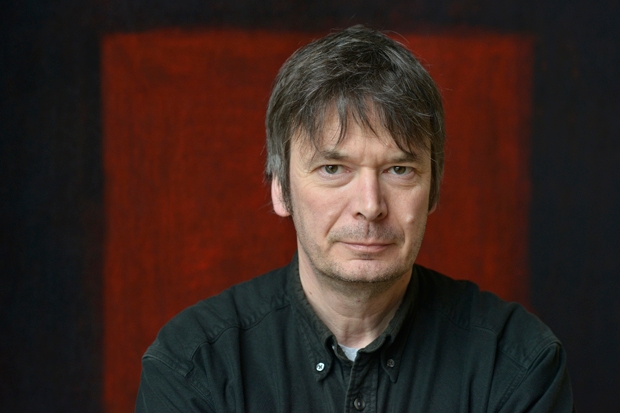After ten days away, I spent last Friday at home alone, catching up on washing, shopping for cat food, answering emails. Quotidian stuff. An early dinner with one of my sons, and I was in bed at a decent hour. Checking Twitter, I began to realise that a grim spectacle was unfolding in Paris. Soon enough, on-the-ground reportage was joined by rumour, inaccuracy and blatant misinformation. That’s the problem with ‘rolling news’ — and Twitter has become part of that industry. On the TV, the reports were more measured but far less immediate, with repetitious footage of police cars and emergency workers. Twitter was the more immersive and pulsating place to be, but I soon grew fatigued by this very fact, and by the deluge of opinions. Radio news at the midnight chimes, and then sleep.
By next morning, flowers were being left outside the French consulate in Edinburgh. I was reminded of the Charlie Hebdo killings just ten months before. Flowers were left then, too, and the queue to sign the book of remembrance stretched along the chill damp pavement. Many of us gathered a few days later for a vigil in the gardens facing the consulate. There were sombre speeches, then silence and the holding aloft of pens. Later some of us attached those pens to the gloss-black metal railings outside the consulate. We were marking our sense of kinship. What more could we do?
On Remembrance Sunday I had been in London, with a mostly free day. I’d happened to be passing St James’s Palace at eleven, so paused to pay my respects while watching a group of busby’d soldiers as they stood to silent attention in the small parade ground to the side of the palace. I thought of my father, who served in the second world war. Our TV would always be switched on for the service from the Cenotaph, and my father would stand for the duration in our modest living room, keeping his thoughts to himself, no visible signs of grief, yet grieving all the same. I think, too, of his father, who never returned from the first world war, leaving my grandmother to bring up six children. Extraordinary how the world has changed; extraordinary how much it hasn’t.
While in London I also — at the artist Alison Watt’s suggestion — visited the Frank Auerbach exhibition at Tate Britain. Born in Berlin, he was sent for his own safety to England just before his eighth birthday, three years before his parents died in a concentration camp. As an art student at Borough Polytechnic, he was taught by David Bomberg, who had served in the first world war. One of Bomberg’s most famous works, ‘The Mud Bath’, is displayed in Tate Britain. It was painted before his war service, yet I see in it the trenches he would inhabit, and the wooden struts required to stop them collapsing.
How do we begin to understand the evil that we humans do, or are capable of doing? Years ago I made a TV documentary about the nature of evil. I interviewed psychiatrists, historians, a death-row inmate, an exorcist and so on. By the end, I could point to an act of evil more easily than I could a purely evil individual. Our best thriller, spy and crime writers play a part, I suppose, by structuring the seeming chaos of events and by peopling their stories with credible characters whose mindsets and motives we readers can inhabit. Then again, fiction has to be realistic. Sometimes, it seems, the real world does not.
A week on from my day in London, I’m in Vancouver. There was no sign of overtly heightened security at either Edinburgh Airport or Heathrow, though it’s difficult to see what more can be done without making the traveller’s life intolerable. In Canada, the first friend I meet is celebrating the election of Justin Trudeau. No fan of Stephen Harper, she has high hopes of the new incumbent. I just hope he doesn’t have to deal with something like Paris anytime soon. In a couple of days I’ll be in Ottawa, which itself was the scene of a terror attack last year. I’ll probably end up discussing that with one of the regulars in my favourite Ottawa bar, Chez Lucien. My book tour schedule includes a stop there — I insisted on it. Life goes on, you see.






Comments